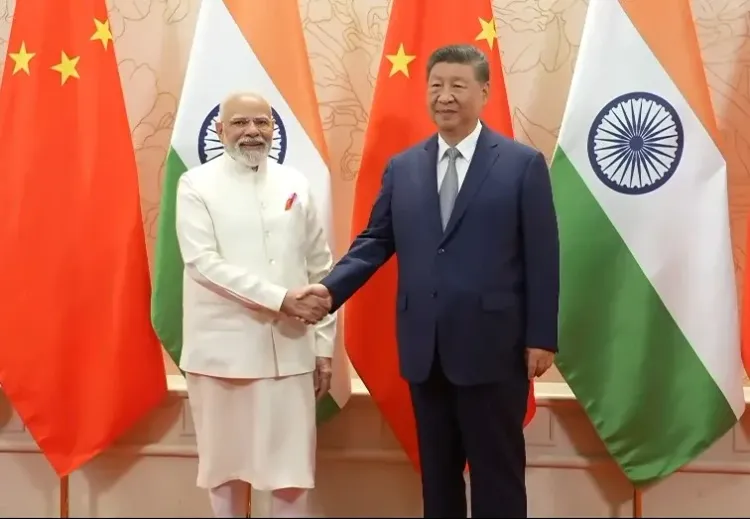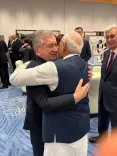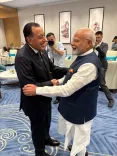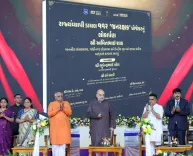How Committed is PM Modi to Advance Relations with Xi Jinping?

Synopsis
Key Takeaways
- Focus on mutual trust in India-China relations.
- Importance of cooperation for global welfare.
- Resumption of direct flights between the countries.
- Border management agreements to ease tensions.
- Symbolic significance of the meeting in the context of US tariffs.
Tianjin, Aug 31 (NationPress) During discussions with Chinese President Xi Jinping in Tianjin on Sunday, Prime Minister Narendra Modi emphasized that the collaboration between India and China is essential for the well-being of all humanity. He reiterated New Delhi's commitment to advancing bilateral relations grounded in mutual trust, respect, and sensitivity.
The dialogue, aimed at enhancing bilateral relations and building upon recent advancements in India-China interactions, took place alongside the two-day Shanghai Cooperation Organisation (SCO) summit. This meeting also occurs in the context of looming US tariff threats.
In his opening remarks, PM Modi expressed gratitude to President Xi Jinping for the invitation, recalling their productive discussions in Kazan last year that contributed positively to their relationship. Following the border disengagement, a climate of peace and stability has emerged. There is now an accord between the special representatives regarding border management, and the Kailash Mansarovar Yatra has recommenced. Additionally, direct flights between the two countries are being reinstated.
He noted that the interests of 2.8 billion people from both nations are intertwined with this cooperation.
"This will also pave the way for the welfare of the entire humanity. We are committed to advancing our relations on the basis of mutual trust, respect, and sensitivity," he stated.
PM Modi also extended congratulations to President Xi for taking on the Chairmanship of the SCO.
Present in the meeting were high-ranking officials from both governments, including NSA Ajit Doval and Foreign Secretary Vikram Misri from India, alongside Chinese Foreign Minister Wang Yi.
The last interaction between the two leaders occurred during the BRICS Summit in Kazan, Russia, in 2024.
The breakthrough in communication was achieved after both parties agreed on patrolling protocols along the 3,500-km-long Line of Actual Control (LAC), effectively alleviating a four-year-long border standoff.
The discussions between PM Modi and Xi Jinping also encompassed border matters.
Analysts assert that the Tianjin meeting is symbolic and crucial for fortifying bilateral relations, serving as a robust counter to the tariffs imposed by the United States.









